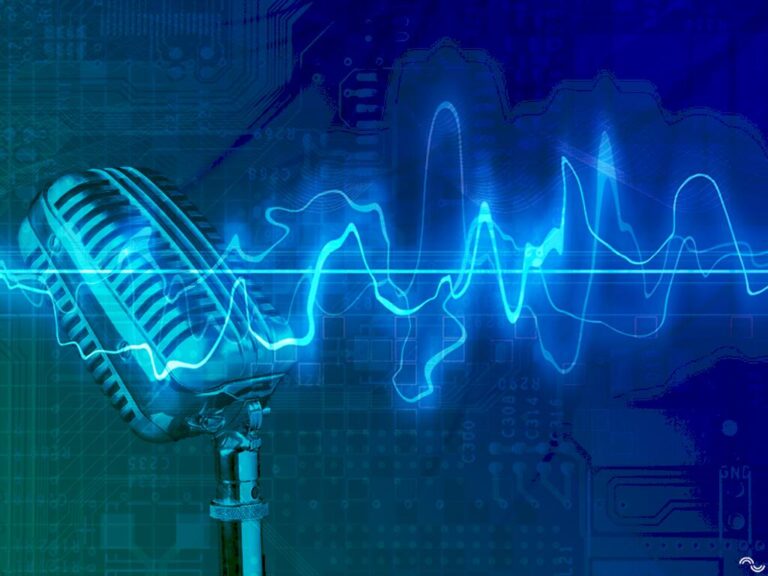Is it possible to live without my body? Theoretically, theologically and logically, the answer is yes! But how? Keep reading! Androids, robots and immorality may not be just science-fiction. I also argue here that not only is it logically possible, but it is also naturally possible, I mean that existing without your body can happen in this natural world. Read on, and I will present actual evidence of this.
One of my favorite movie series is the Terminator, especially the Sarah Connor Chronicles. It pushes the limit on what would qualify as “human.” What is human? See my other blog. But for now, let us address the real possibility of living without our bodies.
But you say, “impossible!” Remember that people used to say that about many things. It used to be the fact that we cannot fly, or even travel faster than the speed of sound–but things changed did they not? The ancients would have called all these technologies magic or “impossible”:
The Light bulb/Telephone/Printing Press/Personal automobile/Camera/Radio/Television/Airplane/Atom Bomb/ Personal Computer/The internet and of course the iPhone or any personal handheld smart phone that link you to information on almost anything in the history of the world were once thought impossible. Now they are real.
Consider this amazing thought experiment, common in many philosophy classes around the world :
A very prominent world class Olympian, Jessica, is dying in the far distant future. Through the gifts of many wealthy friends, she is surviving the destruction of her body by having all of her limbs replaced, one at a time, by bionic, silicone and titanmmin limbs. Little by little she eventually sheds her biological body in favor of a far more beautiful, longer lasting, faster and stronger prosthetic one. This is not a clunky looking Terminator 1, cyborg-like body, but an elegant one–made of stronger materials. One which doesn’t need all the burdensome upkeep, and is much easier to repair if something goes wrong. She makes repeated trips to the cyborg clinic, over the course of years, where slowly, her organs are replaced, starting with her heart with a pump, her liver with an identical processor without human DNA, her kidneys replaced by a superior internal dialysis machine. Her eyes are replaced by mini-cams and her ears by mini microphones, etc. Remember, this is slowly happening over the course of years. Finally all those parts of the brain formerly used to control the functions of Jessica’s various limbs and organs are surgically removed until eventually nothing remains of the human brain–but a silicone and titanium duplicate–that does everything Jessica’s original brain does, but faster! This goes on until all her organs and eventually her body is non-human. What then? On what criteria do we not call this Jessica the same one that first went in for her first operation? This Olympian would eventually be living without her body. She would be numerically the same person, but with a different body. The conclusion is that she must be more than her body.
Our technological limitations do not allow us to complete these tasks, at this time in our history. However, time and time again, we have seen science-fiction become science fact.
Just in case you think this is far fetched, below are three examples of where we are already existing or working on existing without this amazing flesh we call the body.
1) Aclor is a company which preserves bodies cryogenically. They are in the business of deep-freezing human bodies at death for preservation and possible revival in the future. This is called cryonics, for those of you who are interested. Although this is not directly dealing with existing without the body, a person can exist beyond the normal life span with it–if what they say is possible, given newer technology.
2) My second example is that of Kevin Warwick of the University of Reading who claims he is the first human cyborg. Warwick underwent an operation on August 24, 1998 to surgically implant a silicon chip transponder in his forearm. According to Project Cyborg 2.0: “This experiment allowed a computer to monitor Kevin Warwick as he moved through halls and offices of the Department of Cybernetics at the University of Reading, using a unique identifying signal emitted by the implanted chip. He could operate doors, lights, heaters and other computers without lifting a finger. Given the natural progression of technology, a replacement of Warwick’s entire biological body with a synthetic one while preserving his identity as the same person is very much naturally possible, although this is in the far distant future. There are many others like Warwick! Read about them here. And here
Given the natural progression of technology, a replacement of Warwick’s entire biological body with a synthetic one, while preserving his identity as the same numeric person is very much naturally possible, although, again, this is in the far distant future.
3) The third example is that of Second Life (SL), an online environment created by Linden Lab, a company based in San Francisco, one of the many multiple online social networking sites, where the three-dimensional virtual worlds exist where users, referred to as residents, can become whomever — or whatever — they want to be. Although it’s an online environment, its influence reaches into the real world — including a virtual economy that’s dependent upon actual money. You can build friendships, a building, a city or even a world. You can take classes; contribute to the world around you, creating buildings, objects or even animations. The residents in SL aren’t in a game, though there are games inside SL virtual environment.
Further advancements in genetic engineering, pre-implantation genetic diagnosis, cybernetics, robotics, and of course nanotechnology, not only make what I am taking about logically possible, but also naturally inevitable if we continue on this path. In our search for new technologies, many have “advanced” to the point as to “better” the human body where the biological body becomes unnecessary. The conclusions of this on human personhood and ethics are profound. I will comment on this on another blog.
The biological replacement of the body is not limited to machine replacement. Xenotransplantation (merging of human and animal bodies) has been performed and allows for the natural possibility of human chimeras. Chimeras, defined broadly are a single organism composed of a mixture of biological materials from two or more organisms possessing distinct genetic backgrounds. Many new advancements have occurred in the field from Massachusetts Institute of Technology, such as recorded in Peter Menzel’s Robo Sapiens. (MIT Press, 2000).And High-tech guru Ray Kurzweil and life-extension expert Terry Grossman, M.D. argue that because of the incredible advancements in genomics, biotechnology, and nanotechnology, the prospects for immortality are no longer fiction
The World Transhumanist Association, staffed by well respected individuals such as Nick Brostrom, British Academy Postdoctoral Fellow at Oxford University, also advocates similar visions. In fact, arch-materialists, and atheist philosopher Daniel Dennett appears to agree that this is in principle, naturally possible. Property dualists like David Chalmers call this the principle of organizational invariance, which is that, “given any system that has conscious experiences, then any system that has the same fine-grained functional organization will have qualitatively identical experiences.” David, Chalmers, The Conscious Mind, 248-249.
Of course there are marvelous Hollywood movies that express this-existing without-my-body-thesis, such as the Bruce Willis film, Surrogates (2009), set in a futuristic world where humans live in isolation and interact through surrogate human like androids. Many such movies abound. I recommend the Wachowski brothers’ Matrix trilogy (1999-2003), James’s Cameron’s Avatar (2009) and one of my all time favorites, Inception (2010) for profound implications of this.
![]()
Now if this is the case, then it follows logically that I am more than just my biological body. And if I am more than my biological body, then I can argue that it is a logical and natural possibility that I can exist without my biological body–although it may take a few generations to do this.
I argue this in philosophical detail in my article “Existing Without my Body” in the Journal of Interdisciplinary Studies JIS XXV 2013: 89-104. My talk on this at ETS is also available.
I believe we can argue that the evidence that we can exist without our body, establishes a compelling case for the reasonableness of substance dualism or that we just may have what the ancients call a “soul”. If this is possible naturally, any honest seeker should not rule it out spiritually either.
What do you think? Can we exist without our bodies and still be “human”? I appreciate your feedback, insights, questions, and of course criticism.



Pingback: What am I? What does it mean to be Human? | Logically Faithful
I really enjoyed this article especially since I recently finished a video game that focused on Transhumanism and the ethics of it. Basically it made you question if augmenting the human body with machines/increasing the life expectancy goes against God or not. It also made you look at a bunch of the things that could go wrong. One such example is people were getting a chips in their brains similar to that of Kevin Warwick (granted his was in his arm) that unbeknownst to them were programmed to make them go into a blind rage. It would make more sense if you played the game.
Sidenote: I didn’t really get the Terminator reference (never saw the movie).
Hi Jonathan
What video game are you referring to? Why the terminator? Because the terminator is human mimic.
“What can we do, that that machine cannot do,” is the question.
KS
Now the concept of humanity and what it truly means to be human is an interesting concept that is touched upon in every type of media and never ceases to be fascinating. At our core i find that being human is not dependent on our bodies, where our minds to be implanted to machines or other organisms then we would still be the person we were prior just with a different physical form. Rather than wondering if we would still be human, i find it more interesting to wonder if changes to our
body changes us completely from who we ever were. How does changes to our physical form affect our mind is the most fascinating topic to explore.